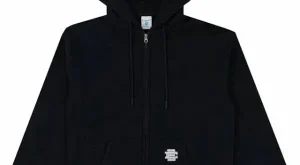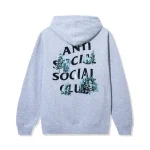In today’s fast-paced world, it’s easy to get caught up in the noise of modern living, constantly adding more things to our lives without considering what we truly need. Whether you’re preparing for daily tasks, an emergency, or even a journey, knowing the essential items you need is crucial to living with purpose and peace of mind. In this comprehensive guide, we’ll explore must-have essentials for various life situations, from everyday living to emergency preparedness. By understanding what constitutes basic necessities and core requirements, you’ll be able to simplify your life and focus on what truly matters.
What Are Essentials and Why Are They Important?
The term “essentials” refers to the items, tools, or resources that are necessary for survival, comfort, and well-being. These are the basic needs that support your daily life, allowing you to thrive rather than just survive. Essential items can vary depending on the context, such as survival essentials needed for outdoor activities or health essentials that maintain well-being.
Understanding what qualifies as an essential allows you to make better decisions when it comes to what you should keep in your home, what to pack for a trip, and what to have in an emergency kit. Whether it’s a fundamental item like food or water, or a must-have accessory for a specific activity, essentials are designed to meet the most important needs in any situation.
Understanding What Qualifies as an Essential Item
What exactly qualifies as an essential item can be subjective, but there are common threads. In general, these items are those that are necessary for survival, well-being, or success in a given context. From your home Essentials to your travel essentials, understanding what you need to live comfortably and productively is key.
- Core Requirements for everyday life include items like food, water, and clothing. These are items that you need simply to exist and function well. For example, a warm coat in cold weather or essential supplies for your daily hygiene routines.
- On the other hand, must-have items for survival or an adventure may include things like a flashlight, a first-aid kit, and extra layers of clothing in case of emergencies.
As you evaluate your own essentials, remember that there are both necessities and luxury items. Essentials are practical, while luxury items add comfort or indulgence without being necessary for survival.
Essential Items for Daily Living
When it comes to daily living, having the daily essentials is crucial for maintaining a smooth, stress-free routine. Basic necessities like food, water, toiletries, and sleep are non-negotiable for everyone. But there are also many essential products that contribute to a better quality of life.
For example, consider your health essentials: a balanced diet, access to clean water, and enough rest are fundamental to good health. Additionally, tools and products like a toothbrush, cleaning supplies, and personal hygiene products should be considered essential items for maintaining cleanliness and health.
Here’s a look at some key essential items for daily living:
- Toiletries (toothpaste, soap, shampoo)
- Clothing (comfort and weather-appropriate)
- Kitchen supplies (pots, pans, utensils)
- Food and drink (healthy staples like grains, fruits, vegetables)
By regularly assessing your daily essentials, you can prevent unnecessary clutter and ensure that you always have the basic necessities at hand.
Must-Have Essentials for Travel and Adventure
When you’re planning a trip, whether it’s for business or leisure, having the right travel essentials is paramount to ensuring a smooth and enjoyable journey. From packing light to preparing for unexpected emergencies, knowing what to bring can make a huge difference.
For example, survival essentials like a portable charger, first-aid kit, and extra clothing can help you in case of delays, mishaps, or emergencies while on the road. Don’t forget must-have items like your passport, money, and any required medications. These items are non-negotiable for your trip.
Here’s a list of must-have essentials for travel:
- First aid supplies (band-aids, pain relievers)
- Portable charger (to stay powered up on the go)
- Water bottle (staying hydrated is key)
- Snacks (quick energy in case you can’t find food)
- Travel documents (passport, tickets, ID)
Having a list of essential items for travel helps prevent forgetting critical items, making your journey more comfortable and less stressful.
Emergency Essentials: What You Need in a Crisis
Emergencies are unpredictable, but preparing with the right emergency essentials can help you feel more secure in a crisis. Whether you’re facing a natural disaster or a personal emergency, knowing what to have on hand can make all the difference.
Survival gear is essential in these situations. A first-aid kit, flashlight, battery-operated radio, and enough food and water for several days are considered critical. Remember, essential items for survival kits are not just limited to outdoor activities but are equally important in home emergencies such as power outages or natural disasters.
Essential emergency items include:
- First-aid kit (bandages, antiseptic, pain relievers)
- Flashlight (and extra batteries)
- Non-perishable food (canned goods, energy bars)
- Water (enough for several days per person)
- Blankets (for warmth in cold weather)
By preparing for the unexpected, you’ll ensure that you and your family are safe, no matter the situation.
Minimalist Living: Focusing on Essential Supplies
In a world where consumerism is often encouraged, minimalist essentials can be the solution for a more meaningful and less cluttered life. This lifestyle focuses on keeping only the essential supplies that serve a functional purpose, removing anything that’s non-essential.
Living a minimalist lifestyle means letting go of unnecessary possessions and focusing on core items that contribute to your well-being. For instance, essential tools for daily living might include a multipurpose knife, a small toolkit, or a quality coffee maker.
The benefits of a minimalist lifestyle:
- Less clutter in your home
- Easier to find and access basic equipment
- More time and energy for the things that matter
If you’re looking for a simpler, more sustainable lifestyle, focusing on minimalist essentials is a great start. Evaluate what’s necessary and remove the distractions.
How to Identify and Prioritize Your Essential Needs
Not all essential items are created equal, and some needs are more pressing than others. To identify your key items and indispensable materials, it’s important to assess your lifestyle, environment, and immediate needs.
Start by distinguishing between items you need immediately (e.g., food and water) and those that can wait (e.g., new furniture). For example, in an emergency situation, your critical components might include medical supplies and shelter. At home, your core essentials might be focused on daily food and hygiene.
Here’s how to prioritize your essential needs:
- Identify immediate needs: food, water, health-related supplies.
- Assess long-term needs: quality of life items like comfort, health, and productivity tools.
- Evaluate what’s essential for your lifestyle: work-related items, recreational equipment, and travel necessities.
By taking the time to evaluate your priorities, you ensure that you’re focused on what truly matters in the moment.
Essential Products for Health and Well-being
Your health should always be a priority, and the health essentials you need to maintain physical and mental well-being are paramount. Whether it’s regular exercise, a balanced diet, or mental health support, the right essential products can have a profound impact on your quality of life.
Basic health essentials include items like nutritious food, vitamins, exercise gear, and tools to manage stress and anxiety. In addition, consider essential equipment for safety, such as helmets for cycling, seatbelts for cars, or fire extinguishers for home use.
Here’s a look at essential health items:
- Supplements (vitamins, probiotics)
- Exercise equipment (dumbbells, yoga mat)
- Sleep aids (mattresses, white noise machines)
- First-aid supplies (bandages, antiseptic)
- Mental wellness tools (meditation apps, journals)
Focusing on health essentials is about ensuring that your body and mind have everything they need to function at their best.
Organizing Your Essentials for Maximum Efficiency
Now that you’ve identified your must-have items and essential supplies, it’s time to organize them for maximum efficiency. Good organization allows you to access your essentials quickly, minimizing stress and saving time.
Must-have accessories like keys, wallets, and mobile devices should always be stored in consistent places so you can easily find them when needed. In addition, creating a system for your essential tools—such as sorting kitchen supplies, organizing office materials, and arranging health-related items—helps streamline your daily routines.
Here are a few tips:
- Use labeled storage bins for easy access to essential items.
- Set up a central spot for important must-have accessories (e.g., a key bowl near the front door).
- Create a checklist of health essentials to ensure you never run out of necessary supplies.
Good organization ensures that you’re always prepared and never scrambling for your basic necessities.
Conclusion: Streamline Your Life with the Right Essentials
In conclusion, understanding and organizing your essential items can significantly improve your daily life. Whether you are preparing for travel, an emergency, or simply looking to reduce clutter, focusing on what is truly necessary allows you to live more efficiently and meaningfully.
As you review your basic necessities and must-have essentials, consider creating a checklist and regularly updating it. Whether you’re packing for a trip or making your home more efficient, always prioritize the essential items that contribute to your well-being and peace of mind.
By organizing your life around the essentials, you can eliminate distractions and focus on what truly matters.
FAQs (Frequently Asked Questions)
- What are the most important essentials for daily living?
- Daily essentials include food, water, toiletries, and clothing. These items are fundamental for maintaining a healthy and comfortable life.
- What are essential items for travel?
- Travel essentials include documents like your passport, toiletries, a portable charger, and a first-aid kit. These items help ensure a smooth trip, no matter where you’re going.
- How do I identify survival essentials?
- Survival essentials typically include water, non-perishable food, a first-aid kit, a flashlight, and a shelter. These are the items you need to survive in an emergency.
- Can I live with just minimalist essentials?
- Yes, living with minimalist essentials focuses on keeping only the items that are necessary for daily life and well-being, removing any unnecessary clutter.
- What should be in my emergency essentials kit?
- An emergency essentials kit should contain water, non-perishable food, a first-aid kit, a flashlight, and blankets. These items ensure your safety in times of crisis.
 Daily Blogger News Stay updated with the latest trends and insights. Your reliable source for daily updates and information.
Daily Blogger News Stay updated with the latest trends and insights. Your reliable source for daily updates and information.







